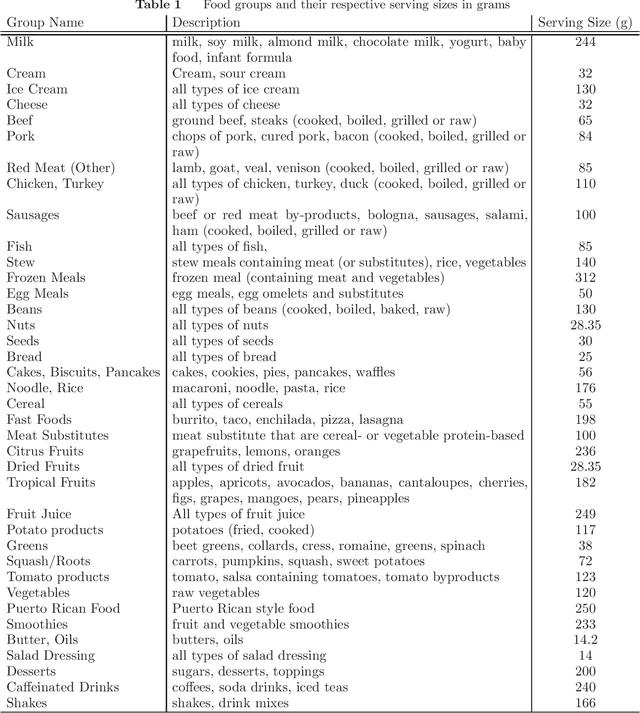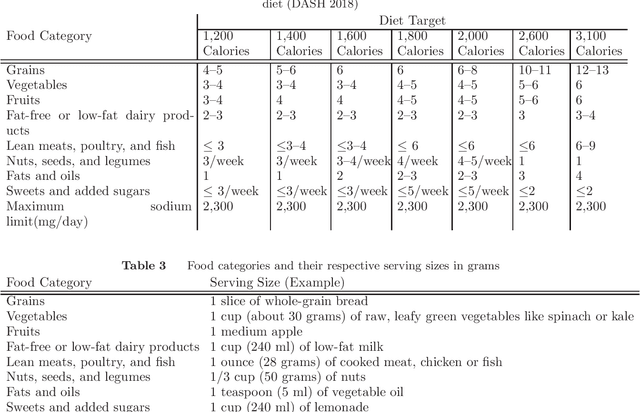Farzin Ahmadi
An Open-Source Dataset on Dietary Behaviors and DASH Eating Plan Optimization Constraints
Oct 15, 2020

Abstract:Linear constrained optimization techniques have been applied to many real-world settings. In recent years, inferring the unknown parameters and functions inside an optimization model has also gained traction. This inference is often based on existing observations and/or known parameters. Consequently, such models require reliable, easily accessed, and easily interpreted examples to be evaluated. To facilitate research in such directions, we provide a modified dataset based on dietary behaviors of different groups of people, their demographics, and pre-existing conditions, among other factors. This data is gathered from the National Health and Nutrition Examination Survey (NHANES) and complemented with the nutritional data from the United States Department of Agriculture (USDA). We additionally provide tailored datasets for hypertension and pre-diabetic patients as groups of interest who may benefit from targetted diets such as the Dietary Approaches to Stop Hypertension (DASH) eating plan. The data is compiled and curated in such a way that it is suitable as input to linear optimization models. We hope that this data and its supplementary, open-accessed materials can accelerate and simplify interpretations and research on linear optimization and constrained inference models. The complete dataset can be found in the following repository: https://github.com/CSSEHealthcare/InverseLearning
 Add to Chrome
Add to Chrome Add to Firefox
Add to Firefox Add to Edge
Add to Edge